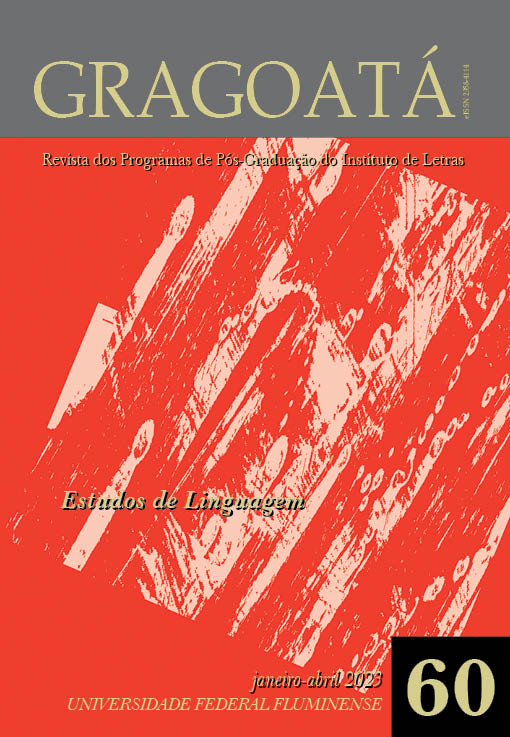A leitura como prática emancipatória em contexto penitenciário: um estudo à luz da linguística aplicada
DOI:
https://doi.org/10.22409/gragoata.v28i60.53209Palavras-chave:
Educação libertadora. Linguística Aplicada. Leitura no presidio. Mulheres no cárcere.Resumo
Como recorte de um projeto maior, denominado “A leitura dialógica em contexto penitenciário: vozes femininas que ecoam responsivamente na construção de sentidos”, este artigo busca investigar a prática social de leitura numa perspectiva dialógica numa penitenciária feminina de Palmas-Tocantins. Inserido na área da Linguística Aplicada, numa concepção Transgressiva (PENNYCOOK, 2006), mais especificamente, buscamos compreender como as reeducandas constroem sentidos como forma de emancipação e conscientização. Para tanto, esta investigação tem orientação interpretativista e inspirou-se na metodologia do Pensar Alto em Grupo–PAG (Cf. ZANOTTO, 1995). Assim, analisamos, a partir da vivência de leitura do conto A moça tecelã, como se deu a constituição da identidade leitora das mulheres encarceradas. A fundamentação teórica relaciona-se aos pressupostos dialógicos do Círculo de Bakhtin, sobre os estudos sobre letramento (STREET, 2014) e à epistemologia da educação emancipadora (FREIRE, 2019; 2020). Os dados revelaram que: i) as participantes descobriram suas vozes, subjetivas e dialógicas (refutando, concordando, ressignificando), por meio da leitura, confirmando que o ato de ler no presídio é uma forma de emancipação e libertação; ii) as reeducandas se emancipam quando tomam consciência do seu estado e a partir daí buscam transformá-lo de maneira crítica e reflexiva.
Downloads
Downloads
Publicado
Edição
Seção
Licença
Copyright (c) 2023 Gragoatá

Este trabalho está licenciado sob uma licença Creative Commons Attribution 4.0 International License.
AUTORIZAÇÃO
Autores que publicam em Gragoatá concordam com os seguintes termos:
Os autores mantêm os direitos e cedem à revista o direito à primeira publicação, simultaneamente submetido a uma licença Creative Commons Atribuição 4.0 Internacional (CC BY 4.0), que permite o compartilhamento por terceiros com a devida menção ao autor e à primeira publicação pela Gragoatá.
Os autores podem entrar em acordos contratuais adicionais e separados para a distribuição não exclusiva da versão publicada da obra (por exemplo, postá-la em um repositório institucional ou publicá-la em um livro), com o reconhecimento de sua publicação inicial na Gragoatá.
A Gragoatá utiliza uma Licença Creative Commons - Atribuição CC BY 4.0 Internacional.











